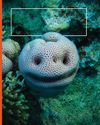
BBC Science Focus
CORAL-FRIENDLY SUNSCREEN
Chemicals in sunscreen can bleach and harm coral reefs, but a new product on the market hopes to replenish them
3 min |
July 2025

BBC Science Focus
YVONNE TEVLIN, VIA EMAIL: HOW CAN I BEAT COMPASSION FATIGUE?
There are plenty of claims about the “best” sleep position — for example, it’s often thought that sleeping on your left side aids digestion.
2 min |
July 2025

The Week Junior Science+Nature UK
HEADSCRATCHERS
Seeking answers to your science questions? Ask our resident expert
3 min |
July 2025

The Week Junior Science+Nature UK
Hedy Lamarr
Peter Gallivan, author of The Hidden Heroes of Science, shines a spotlight on a star inventor.
2 min |
July 2025

The Week Junior Science+Nature UK
SCIENCE FACT OR SCIENCE FICTION?
Scientists serve up a robot cake
1 min |
July 2025

The Week Junior Science+Nature UK
Puppets fight for action
From 27 to 29 June, a herd of life-sized animal puppets will be trooping through the streets of London.
1 min |
July 2025

The Week Junior Science+Nature UK
Sharks inspire new tec
Aeroplanes coated in a material inspired by shark skin could stop airlines from burning billions of litres of fuel each year.
1 min |
July 2025

The Week Junior Science+Nature UK
Create your own alien language
Use machine learning to train a computer and control an alien creature.
1 min |
July 2025

The Week Junior Science+Nature UK
3D-printed bike with no wheels
A British inventor has attracted a lot of attention for his newest creation: a bike that doesn't have any wheels.
1 min |
July 2025

The Week Junior Science+Nature UK
Nectar on the rising tide
Farmers have found a sweet solution that saves coastal wetlands.
1 min |
July 2025

The Week Junior Science+Nature UK
NATURE'S BAD GUYS
Ciaran Sneddon meets the greatest “villains” of the animal world.
5 min |
July 2025

The Week Junior Science+Nature UK
MONKEYS: OUR PRIMATE FAMILY
In just a few days, an exciting exhibition about primates will open at the National Museum of Scotland in Edinburgh. Primates are an order of mammals including apes, monkeys and humans.
1 min |
July 2025

The Week Junior Science+Nature UK
Can humans live without plastic?
Plastic makes life a lot more convenient in many different ways, but it comes at a cost.
1 min |
July 2025

The Week Junior Science+Nature UK
The riddle of the dino grave
About 72 million years ago, around 10,000 dinosaurs died instantly in a relatively small area in Alberta, Canada, and scientists are unsure why.
1 min |
July 2025

The Week Junior Science+Nature UK
Wildlife watch
I'm Dr Alexander Krajete, and I help make our planet a healthier place. Together with my amazing team, I've created a special kind of filter that can clean dirty air. That means fresher, cleaner air for everyone and our ecosystem.
2 min |
July 2025

The Week Junior Science+Nature UK
Penguin poo helps form clouds over Antarctica
Penguin poop may help clouds form in Antarctica, according to a new study.
1 min |
July 2025

The Week Junior Science+Nature UK
Sci-fi hoverbike takes to the sky
A Polish company has produced a Star Wars-style hover bike.
1 min |
July 2025

The Week Junior Science+Nature UK
A massive Moon mystery explained
Space scientists now understand why the Moon's faces look so different.
2 min |
July 2025

How It Works UK
HOW PARACHUTES WORK
There's much more to this essential piece of flight safety equipment than a simple tug on a rip cord
3 min |
Issue 204

How It Works UK
China and Russia to build a power plant on the Moon
Russia has signed a deal with China to build a nuclear power plant on the Moon.
2 min |
Issue 204

How It Works UK
WHAT IS A STARQUAKE?
Neutron stars can suffer quakes far more powerful than anything on Earth
3 min |
Issue 204

How It Works UK
EARTH'S MAGNETIC FIELD REVEALS WHAT DROVE EARLY HUMANS OUT OF AFRICA
A core of rock and sediment drilled from the bottom of Lake Chala, a crater lake on the border of Tanzania and Kenya, contains records of wobbles in the planet’s magnetic field.
1 min |
Issue 204

How It Works UK
Does launching rockets harm the environment?
In theory, yes. There are various ways a rocket launch can cause environmental damage, but in practice they make a very minor contribution to such damage compared to things we do in our everyday lives.
6 min |
Issue 204

How It Works UK
A groundbreaking amplifier could make the internet ten times faster
Scientists have developed a new type of laser amplifier that can transmit information ten times faster than current technology. Laser amplifiers boost the intensity of light beams.
2 min |
Issue 204

How It Works UK
NORWAY AIMS FOR A “SAFE, PEACEFUL AND PROSPEROUS FUTURE IN SPACE”
55 nations have now penned their commitment to NASA’s Artemis Accords. NASA announced Norway’s decision to sign up for a “safe, peaceful and prosperous future in space”, as the space agency’s website phrases it.
1 min |
Issue 204

How It Works UK
1940s Ford car found on a wartime US carrier wreck
Researchers exploring the wreck of an American aircraft carrier have discovered what's left of a wood-paneled Ford automobile from the 1940s in the ship's hanger bay.
2 min |
Issue 204

How It Works UK
HOW TO EXPLORE IMPOSSIBLE DEPTHS
Crabster is built to crawl across the ocean floor, reaching locations off limits to other submarines
2 min |
Issue 204

How It Works UK
RAPID EVOLUTION IN ACTION
We think of evolution as a slow, gradual process, but that’s not always the case. Some species undergo a rapid transformation
3 min |
Issue 204

How It Works UK
ON BOARD AN OCEAN RESEARCH VESSEL
The OceanXplorer is one of the world's most advanced research vessels, sailing the seas in the name of scientific discovery
1 min |
Issue 204

How It Works UK
HOW TO PICK A POPE
Follow the Vatican's journey to appoint the next direct successor of Saint Peter
6 min |
